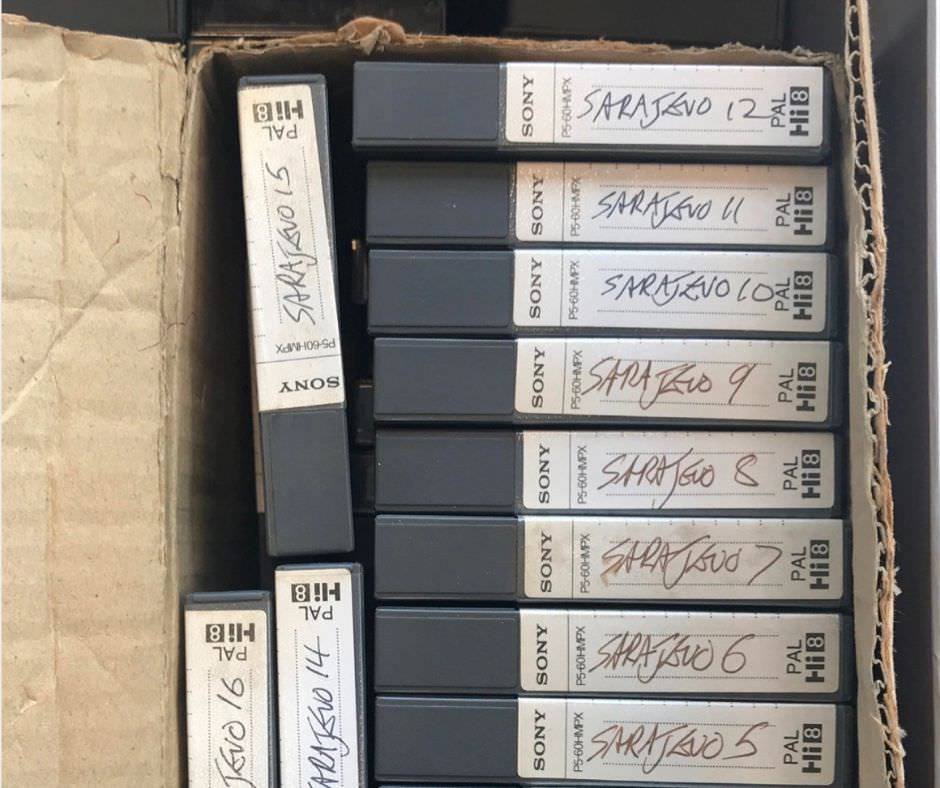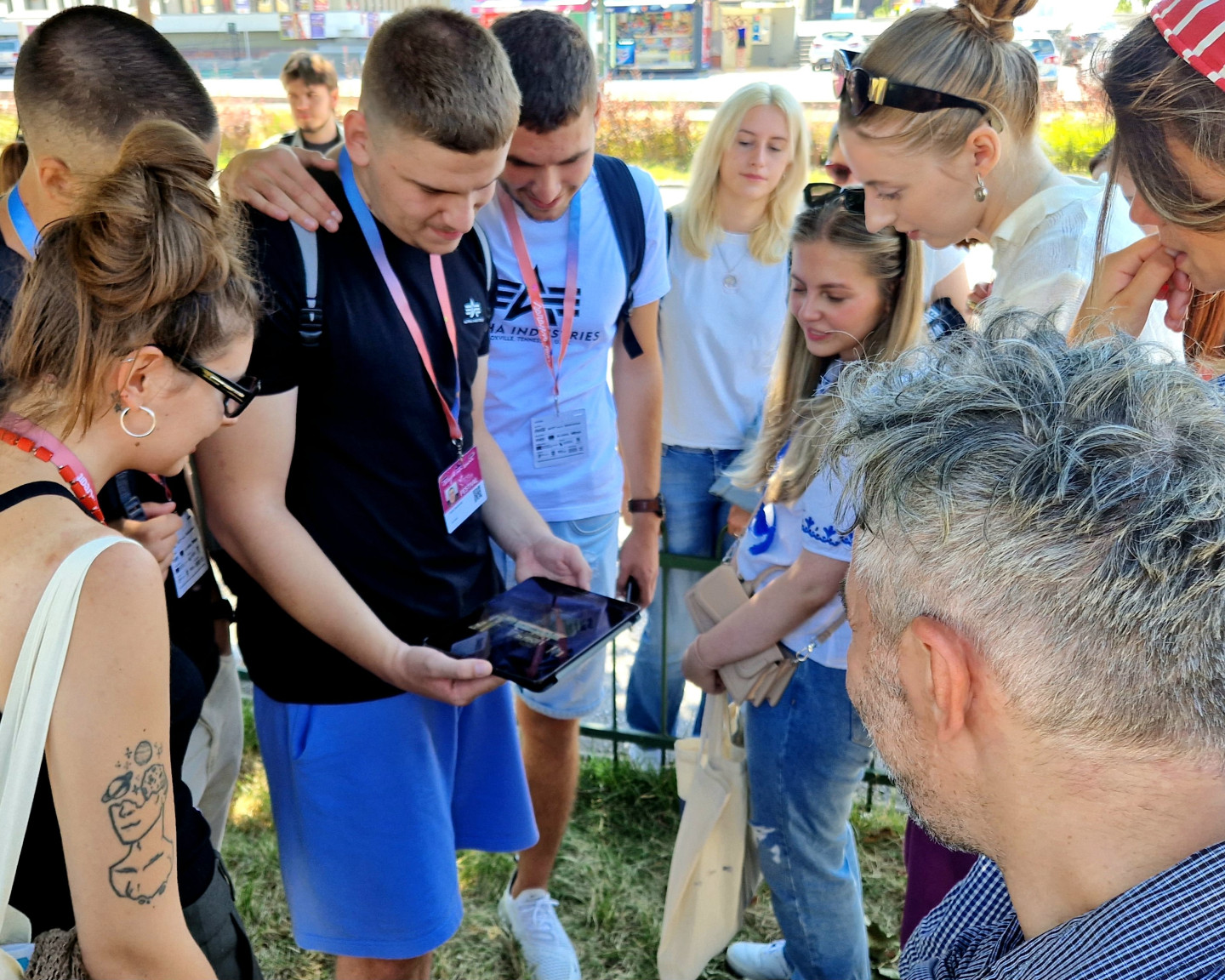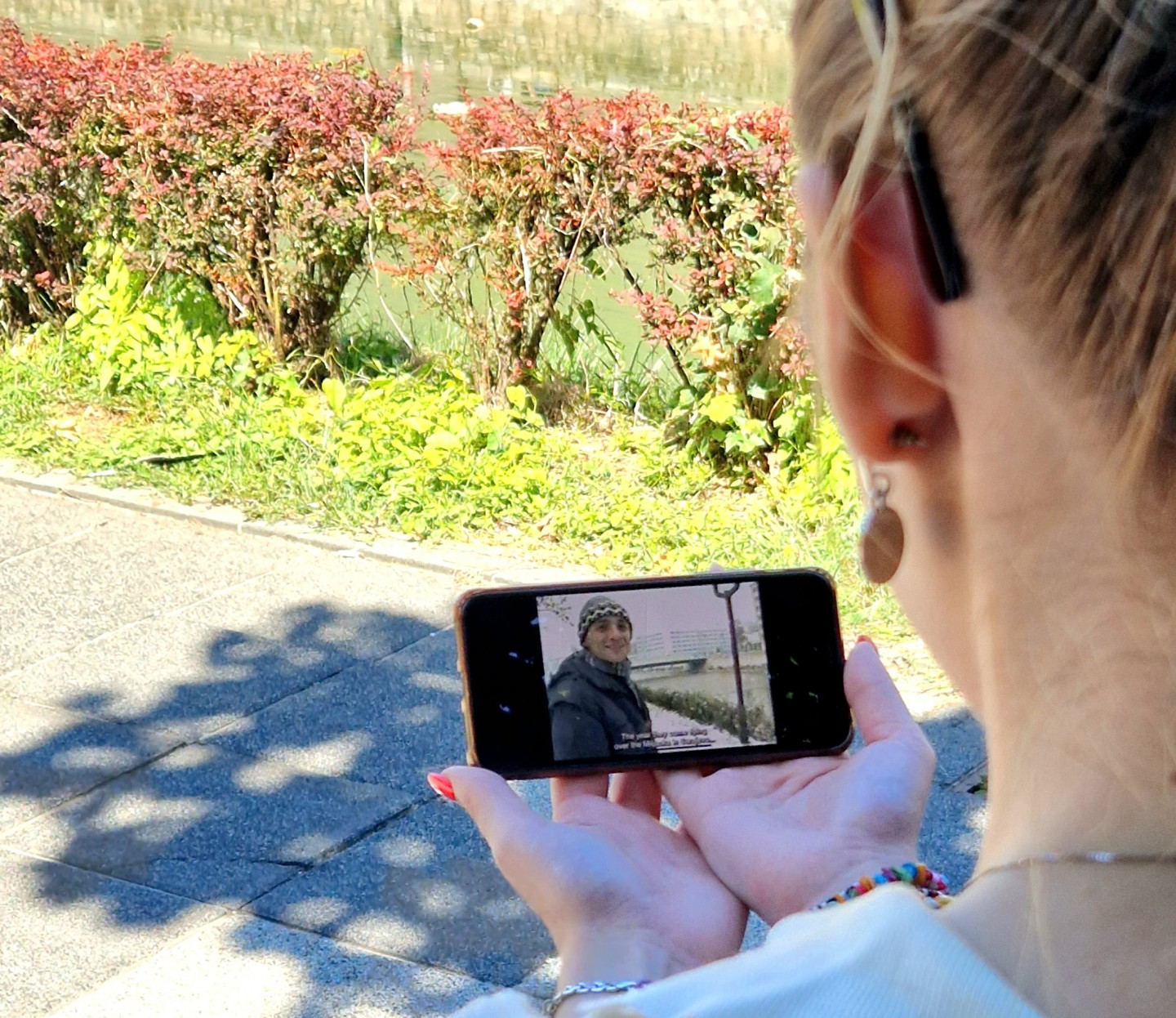2022 marked the anniversary of the breakup of Yugoslavia in 1992 which was a result of and led to a series of separate but related wars on its territory from 1991 to 2001. In the realm of wars, ethnic nationalist interpretations of history formed their war-mongering propaganda, which encouraged war crimes up to and including genocide.
Against this political background, dealing with history in multi-perspective ways is of utmost importance for our present democracies. ARchipelago [ˌɑːkɪˈpeləɡəʊ] has created a transnational site-specific archival platform for public space in the post-Yugoslav space that brings together war document collections. Thirty years after the wars that led to and followed the break-up of Yugoslavia, many dedicated archival initiatives collectively offer a rich multi-perspective view of the recent history of the region. But they rarely come together and often struggle with repression in their respective local contexts.
Traditional ways of engaging with history often ignore all available interactive media. This is where ARchipelago comes in, turning a smartphone into an easily accessible archaeological device independent of local political restrictions while bringing together a multitude of archival voices. Historical audiovisual documents tagged with GPS data are available via an augmented reality (AR) app. ARchipelago exposes different archival mediums in constant transition, changing forms and formats, from architecture to the images of war as photos, video, film, and vice versa, as well as human and other-than-human archival bodies. Diverse archival holding can be made topographically and interactively accessible at places they are linked to and encountered in a low-threshold way.
Exploring a multi-perspective view on the region's history through Augmented Reality
The digital art and research project connects different archival initiatives exploring the technology of AR as hands-on participatory archival practices within the post-Yugoslav space. It has introduced a carefully curated multi-perspective view on the region’s recent history that encourages audience interaction via a mobile AR app, a website archive as well as accompanying public events such as exhibitions, workshops, and film screenings in Bosnia and Herzegovina, Serbia, Kosovo, and Croatia as well as internationally as part of its dissemination strategy.
Its main objective is an open-access, archival and exhibition platform crossing digital and public space for trans-territorial learning on war destruction and trauma within the Post-Yugoslavian space to share memorial spaces for non-violent, inclusive conversations where personal testimonies get voice attached to locations where war experiences occurred. Every result will be produced in an accessible format for the ordinary public and academic researchers and professionals - filmmakers, artists, and journalists. [ˌɑːkɪˈpeləɡəʊ]’s concept and infrastructure including the app and its entangled website can be transferred easily to other regions as it is based on open-source technologies.
When preparing the final proposal, the project team worked with all involved key and local partners on the further development of [ˌɑːkɪˈpeləɡəʊ]. In several online meetings and during the [ˌɑːkɪˈpeləɡəʊ] workshop on the island of Brać, Croatia the team discussed further fundraising as well as the budgeting and contribution of each partner. Subsequently, we assigned tasks, specific needs, and broader aspects i.e., forming local hubs by key partner), technological implementation, international embedding, as well as educational programmes.
I must say I'm surprised in a good way. I lacked a little imagination about how we bring this together, the different places, experiences, and points of view. But we came together here, and I think with ARchipelago, something special is emerging that will have an impact even beyond our specific goals.
Nihad Kreševljaković, Library Hamdija Kreśevljaković, Video Arhiv
Archival research hubs
At each site an ARchipelago archival research hub is set up, focussing on the respected local case studies and how they can be linked back to the broader structure of the platform. Their commonality lies in linking personal memory with history as well as oral history with various archival documents in AR: In Belgrade (Serbia), a collection of counter-memorialization to the "General Stab'' is built up, the former military headquarters of the YNA that was destroyed during the NATO bombardments. In Sarajevo (Bosnia and Herzegovina), there is a focus on microstories, visual collections from different neighbourhoods, and public spaces that traditionally have an important social role in Sarajevo, including life during the siege in the earliy nineties.
In Mostar (Bosnia and Herzegovina), the river Neretva is in the centre as an archive of war and a testimony to the present environmental destruction. In Prizren (Kosovo), the collection of amateur videographers, who documented pre-war protests, public manifestations and the transformation of the urban landscape of Prizren, is the starting point for the collection of further comparative archival material.
Road-testing the app
In August, ARchipelago joined forces with the “In Youth Eyes – Dealing with the Past/Present” programme taking place during the Sarajevo Film Festival. “Dealing with the Past” programme and through their eyes tell the story of intercultural dialogue, youth cooperation, diversity and peace building. The "Dealing with the Past" programme during the festival annually offers an opportunity for young people from ex-Yugoslav countries to visit Sarajevo, meet with their peers, discover, watch and learn about the communities and others through movies, discussions but also physically interacting with the city.
The interactive workshop brought together young people from the region to get to know the project’s objective to explore a multi-perspective view on public space through Augmented Reality in Bosnia and Herzegovina, Serbia, and Kosovo. More importantly, being a prime target group of the project, the group road-tested the specially designed application, turning their smartphones into accessible mobile archives.
The ARchipelago walk and the app testing emerged as one of the participants' preferred workshops. Their appreciation was particularly noteworthy due to the unique opportunity it provided to explore Sarajevo using their mobile devices while gaining fresh insights in an innovative manner. A significant highlight for them was the engaging conversation and interactions with the developers and visionaries behind the projects. This interaction offered them a deeper understanding of the project and the underlying technological aspects. They hold the application in high regard for its utility and user-friendliness, as it empowers them to freely navigate and connect while also delivering previously unknown information about events during the Siege of Sarajevo.
This platform is not only a chance for us to present our case study but also serves as a significant learning experience. The diverse range of archives and methodologies discussed offer valuable insights and inspire new perspectives on archival practices and the politics of representation.
Eroll Bilibani, Dokufest, Prizren, Kosovo, ARchipelago's ARchival Hub Prizren
Further 'test walking' with other partners and stakeholders has likely influenced key decision-makers. This engagement allows them to witness firsthand the potential impact and relevance of the ARchipelago project, potentially leading to increased communication support and visibility. The symposium "Entangled Archives of Wars", marking the conclusion of this phase of the project, served as a platform for engaging scholars, researchers, and individuals interested in the project's thematic focus. The exchange of ideas and insights during the symposium likely contributed to the project's refinement and enriched its future perspectives and development. The symposium marked a significant milestone as the first of its kind, bringing together scholars and practitioners in archiving from various parts of the post-Yugoslav sphere. This achievement not only stands as a success in itself but also underscores the vital role of the ARchipelago project as a cross-border archival platform, connecting partners across different regions.
Forward looking
The project continues to develop with the same partners during 2024 funded by the Goethe-Instutut’s Excellence Initiative. The early presentations and tests, as well as the work at the archival hubs and the symposium conducted during the project's first year, serve as a foundation for the upcoming second project year with the local launches and fostering of the entanglement with further partners, especially in the educational sector.
The challenges and topics addressed by the ARchipelago project, particularly in cross-border archival collaboration and exploring war narratives, could inspire other relevant actors. The project's success and uniqueness may serve as a catalyst for discussions and initiatives among scholars, practitioners, and institutions involved in archiving, historical research, and cultural preservation. The emphasis on cross-border connections and the visibility of previously unseen archival holdings could encourage similar endeavours, fostering a collective effort to address challenges in archiving and historical representation.
There are specific new partnerships that will all be included in the ARchipelago platform in 2024. Furthermore, our positive reception and interest from various stakeholders, including the public, led to funding opportunities with Arsenal Berlin and the possible expansion of the ARchipelago project in 2025. Finally, there are three concrete archival initiatives in Turkey and Lithuania that are interested in becoming part of the ARchipelago.



